I am not a wheelchair
When people refer to me as an inanimate object, I feel dismissed and dehumanized.

Lisa Freeman speaks about why language and treatment of people in wheelchairs matters. Watch video
Lisa Freeman, CBC Ottawa First Person January 23, 2023
| This First Person article is the experience of Lisa Freeman, a person who splits her time between Ottawa and Montréal and uses a wheelchair. For more information about CBC’s First Person stories, please see the FAQ. |
While it might seem obvious because, of course, I’m not an inanimate object or an artificial intelligence writing this column, people refer to me as a thing – “a wheelchair” – in myriad everyday situations from riding the bus to returning library books.
Perhaps if you use a mobility device, you might be nodding knowingly having heard this phrase directed your way.
Or perhaps you’re remembering a time when you wanted to help out and let a bus driver know “a wheelchair” needed to get off, and now you’re feeling a bit uncomfortable.
It makes me uncomfortable — and sometimes frustrated, sometimes angry — when people refer to me as a wheelchair. It feels as if they are not seeing me as a person, but as a thing.
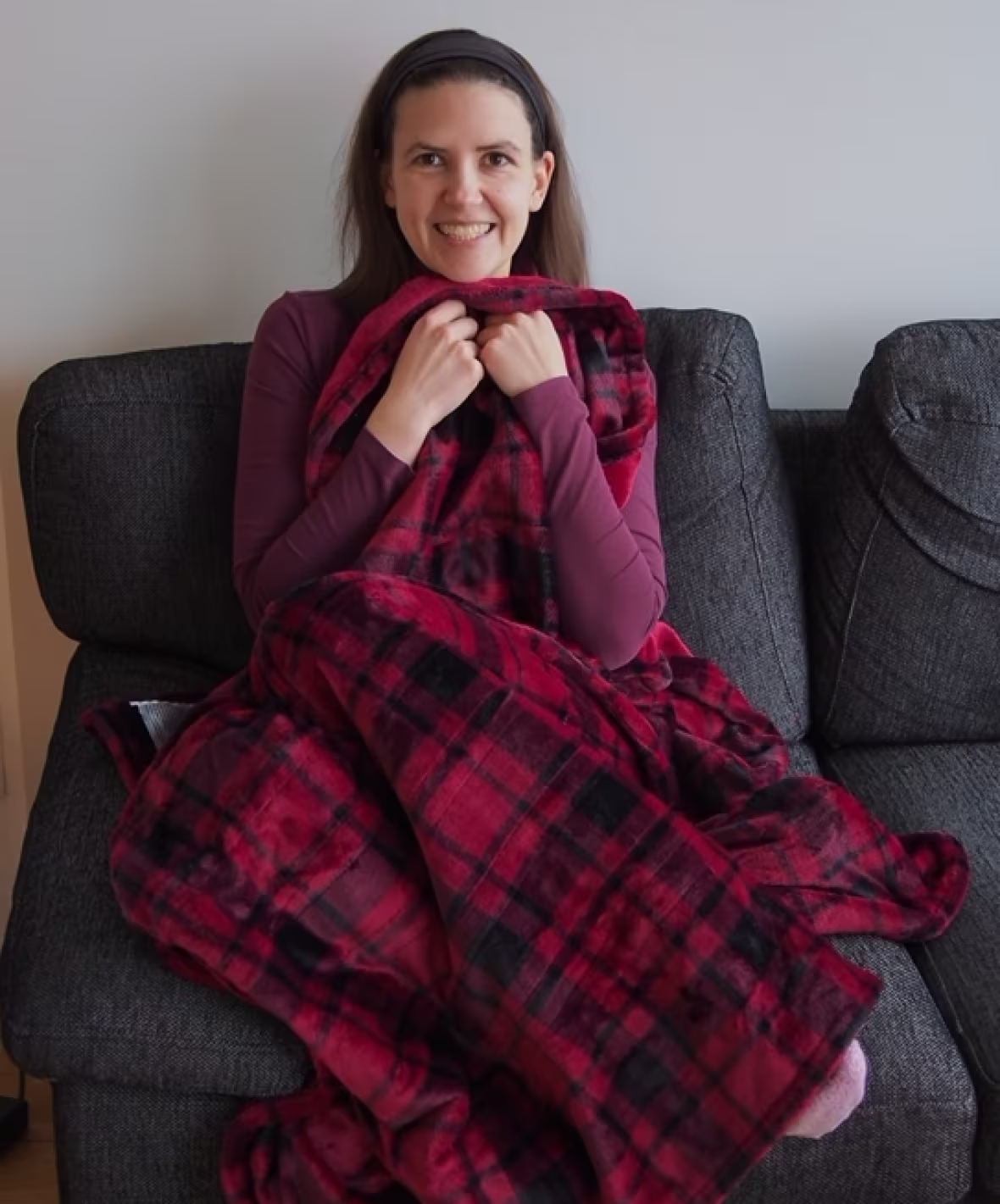
Lisa Freeman curls up under a blanket in her preferred reading spot. Brandon Findlay
| An obstacle at the library |
I visit the library frequently, and carry a few books on my lap. I also have a few in the back of the wheelchair when I go to return the books at the book drop.
It takes me a minute to get them out, and I’ve overheard people direct children to “wait for the wheelchair” to finish before approaching the slot.
I’ve had people reach over me so that they can put their books in ahead of me. It’s even more frustrating when some people silently try to push me out of their way as if I were merely an obstruction in their path that they could simply shift aside.
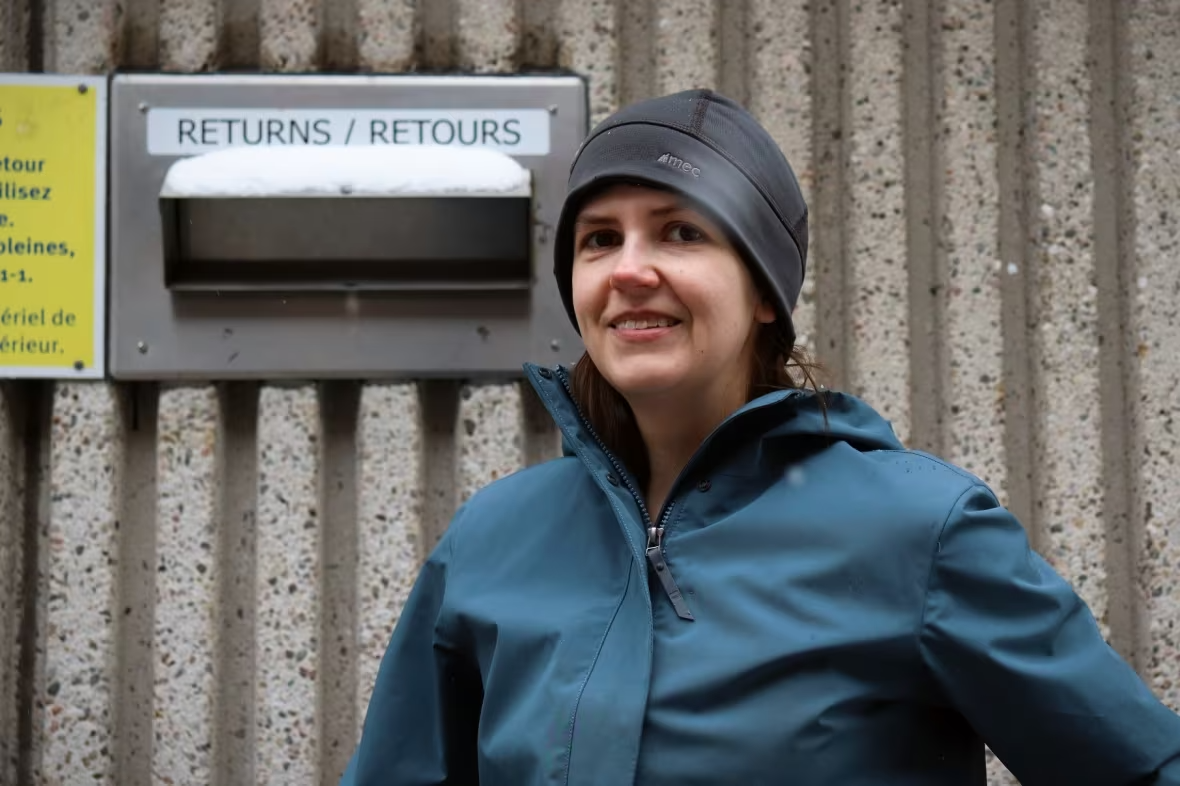
Freeman says people sometimes reach over her to put their books in the slot or even push her and her wheelchair out of the way to access the library return slot. Trevor Pritchard CBC
Although these people do not say “that wheelchair is in my way,” their actions make me feel as though I’m not seen as a human, as a person, or as a fellow library patron, but rather as an object and obstacle.
I’ve also felt this way while travelling by train when an attendant checking my ticket informed me that a baggage handler would arrive so I could embark. She could have said a staff member would be coming, but it seemed she saw me as an object and so she referred to me as if I were one. As if I were luggage. I am not baggage! My husband also raised an eyebrow at that; we didn’t have any large luggage with us and we didn’t need a baggage handler to help us.
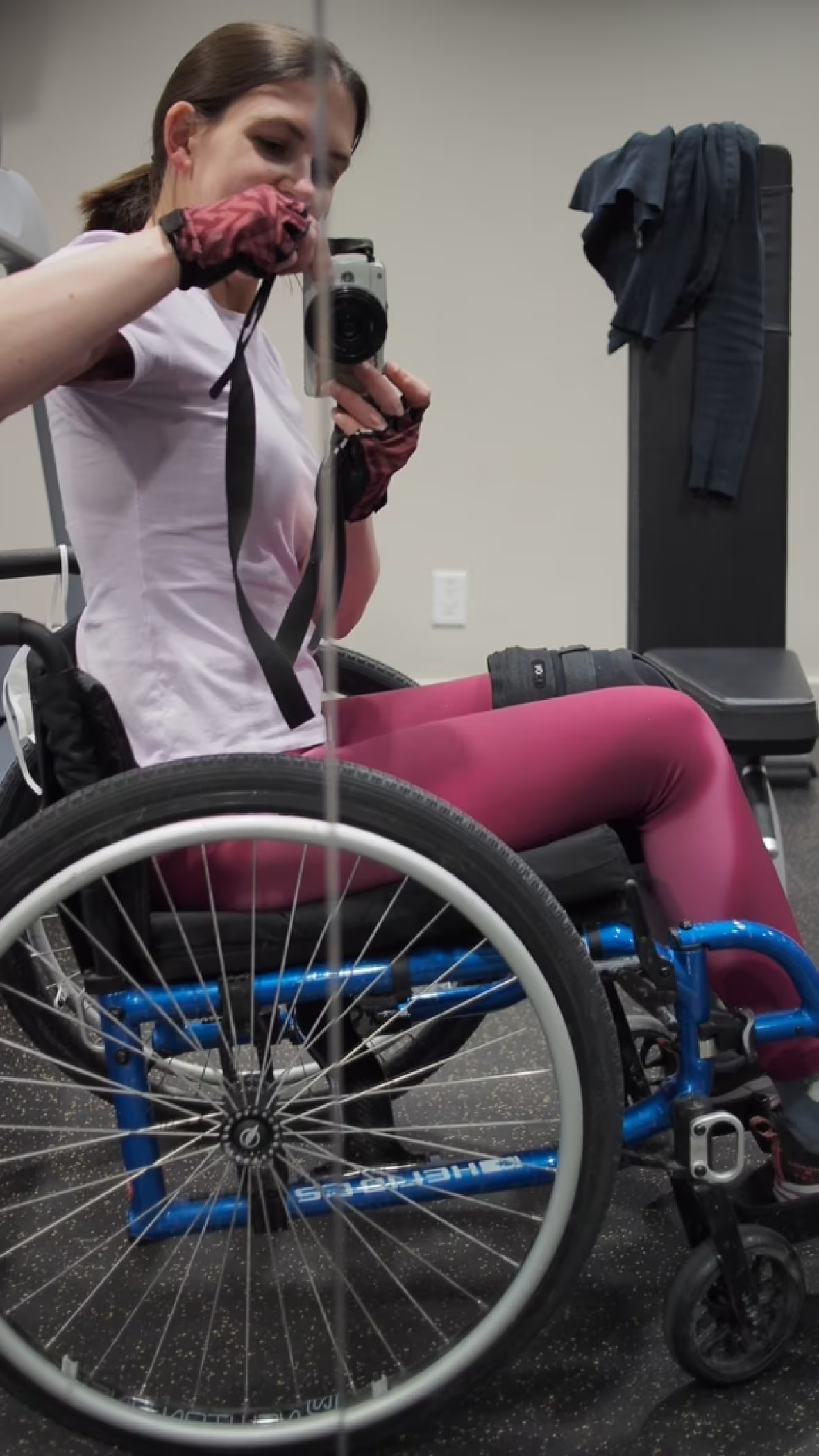
Lisa Freeman took this selfie on one of her regular visits to the gym. Lisa Freeman
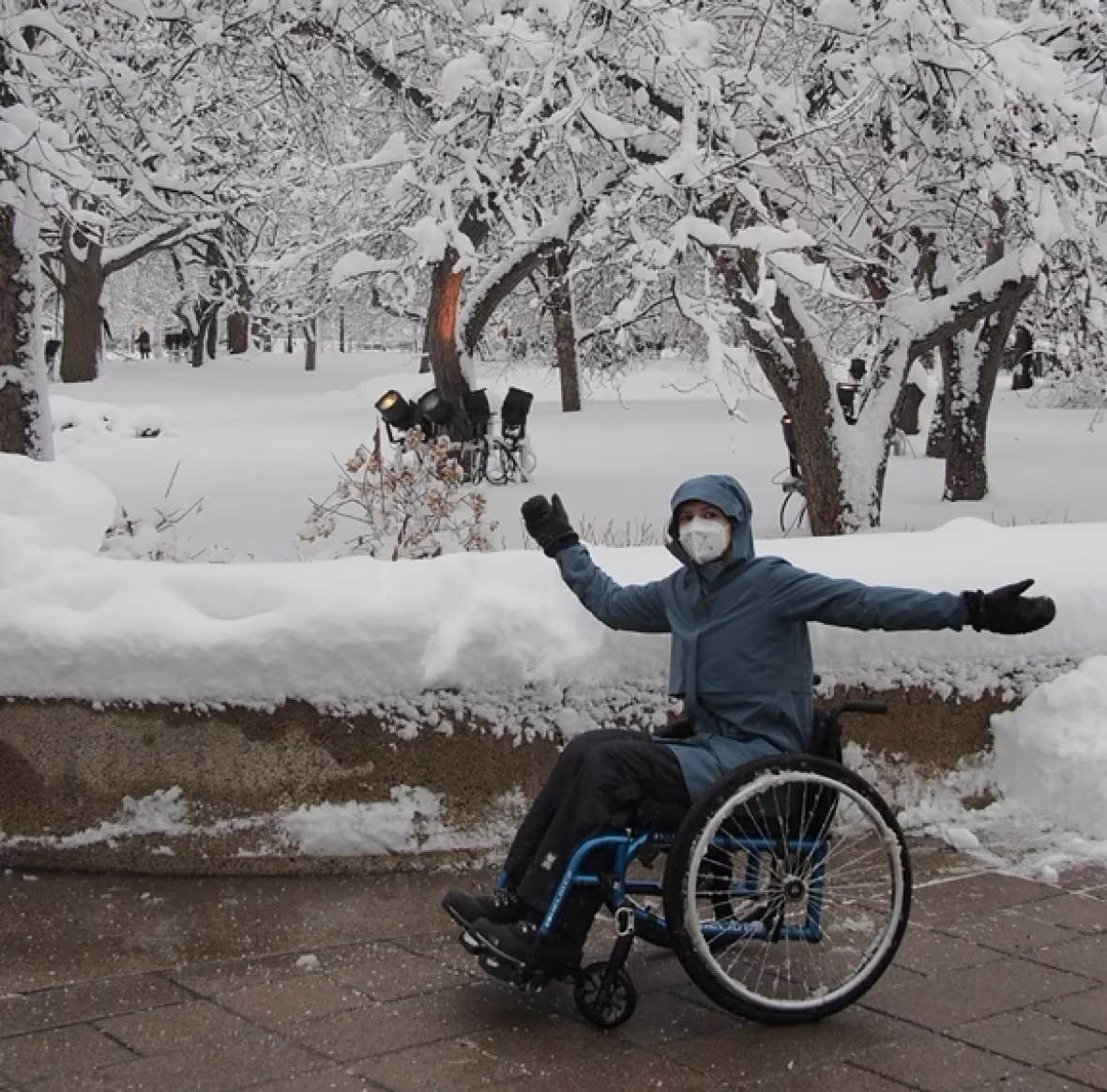
Freeman uses a wheelchair to get around, but does not want to be referred to by her mode of transport. Brandon Findlay
| ‘I can move myself’ |
As I navigate these situations of ableist microaggressions, I sometimes speak up — when I have the energy, when it feels safe, and when I feel like it might make a difference either to how I feel or to someone else who might learn something.
When a staff member in an airport security line tried to move me from behind without warning, I loudly said, “I can move myself! You just have to ask.” His colleague doing the screening apologized, and I left to catch my flight.
It can be hard to balance speaking up for myself and being an advocate with the reality of my day to day, such as the need to get to my destination on time or complete my task. It is tiring to always have to educate people about respecting another’s personal space, and remind them that people different from them are people, too.
For me, if I am able, it is worth it to put in this effort. It matters to me that people do not call me a wheelchair, because I think it leads to people treating me as if I am one, as if I am a thing and not a person.
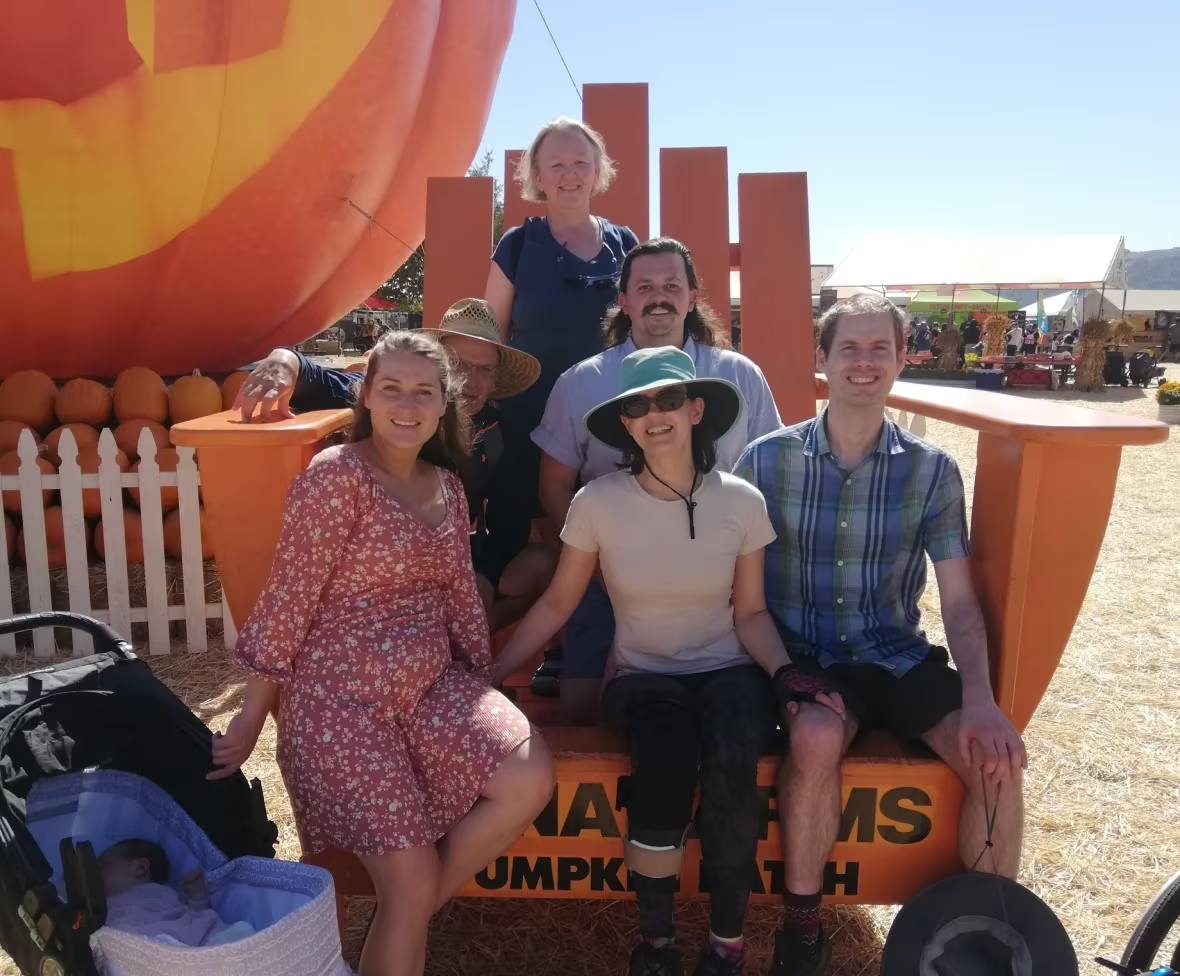
For Freeman (bottom row, middle), it’s important to be seen doing ordinary things as a wheelchair user, such as going to the pumpkin patch with her extended family. Submitted by Lisa Freeman
I’m not representative of every person who uses a wheelchair (nor every wheelchair user, as some people may prefer to be called) let alone all people who have other mobility devices or aids.
I am an individual, and speak only for myself when I ask you not to think about or refer to me this way.
The vast majority of people seem to want to be kind, and want to “help,” but it does not help me to be seen as “other” or “less-than,” or to be dehumanized and dismissed.
I am cast in many roles — an aunt, a client, a customer, a daughter, a passenger, a physician, a wife — but I am first and foremost a person just like you are.
I am not a wheelchair.
| ABOUT THE AUTHOR |
| Lisa Freeman shares her time between Ottawa and Montréal. She enjoys practicing in her field of medicine, playing the flute, and improving her English and French through reading and writing. She tries to be outside as much as possible and looks forward to a world without ableism. |
| Do you have a compelling personal story that can bring understanding or help others? We want to hear from you. Email us with your pitch. |
![]() Source CBC Ottawa First Person
Source CBC Ottawa First Person
The deadly danger of ableism in health care during a pandemic CBC
10 things you should know about disabilities and the people who have them CBC
